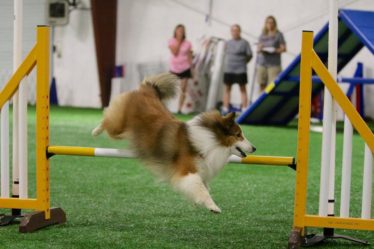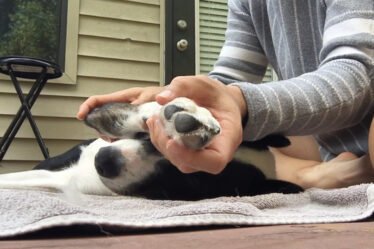
I believe that how you train is just as, if not more, important than what you train. How we communicate, support and reward our dogs throughout a training session has an impact on what our dogs learn and how they perform. These are the three principles I follow in my own training to ensure I create a positive learning environment for my dogs.
Always Train in a Good Mood
Your dog is going to need your full support on course to understand their job, and if your dog is still in training your support is critical for their success. Coming to a training session in a bad mood or training while distracted by other problems does your dog a disservice. You should always bring your best self to training; and I know, this can be easier said than done. Taking a moment to clear your head, plan and set expectations for an upcoming training session is a good step to set yourself and your dog up for success.
Never Fail More Than Twice
When challenging a concept I want to see my dog make mistakes and think through each new challenge. This is how their understanding of a behavior grows. However, I do not want to see my dog frustrated or discouraged. Failing over and over again does just that for most dogs. After the second failure of a skill, I always add more support (e.g., moving closer during a distance drill, luring with your hand, slowing down) and reduce the difficulty back to our last successful attempt.
End with Playtime
Dogs have been shown to retain information better from training sessions when they also engage in a short play session (approx: 5 minutes). This is a bonus for training new skills, and there are huge benefits for our team development. Through play you can learn more about your dog. Consider what toys they like, what noises they find funny or scary, and how they reaction to motion? All of this information will be important throughout your agility career. We’ll gain useful insights about how to better communicate and support our dogs on and off the course from engaging in thoughtful play. We are also reinforcing ourselves to keep training sessions positive and fun; remember we always train in a good mood.


